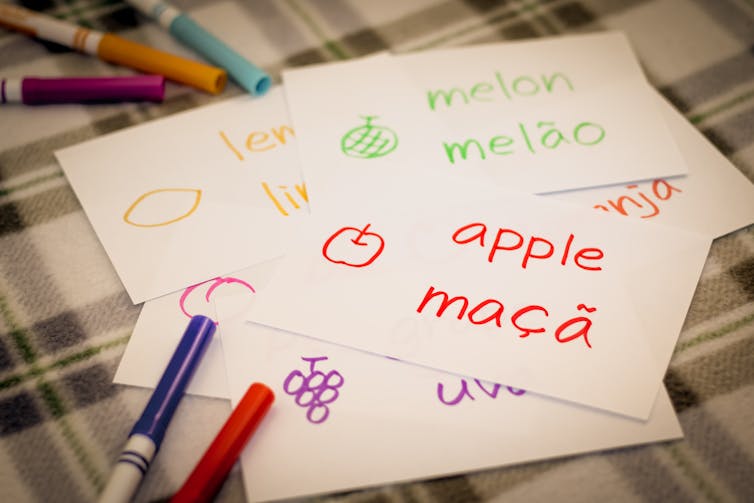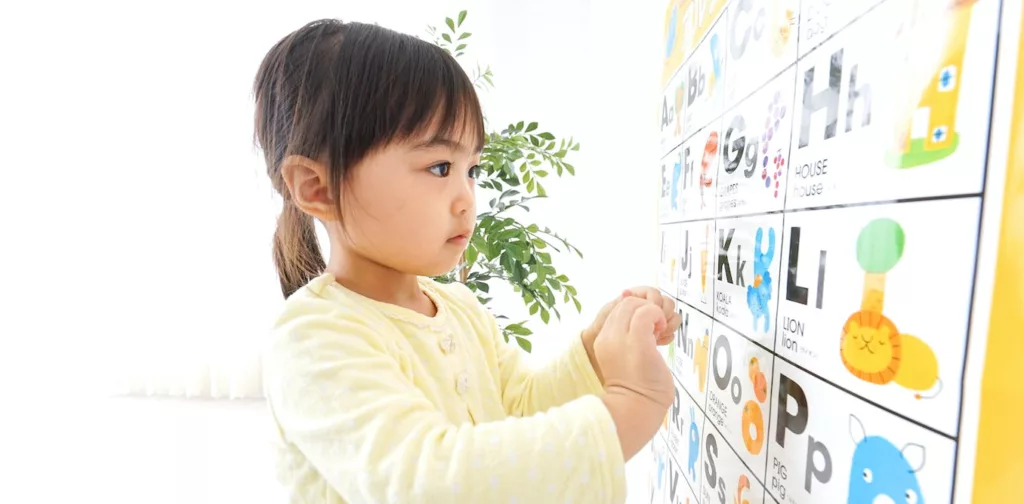[ad_1]
Some languages appear tougher than other individuals. Does that mean that the brains of individuals who converse those people languages are additional stimulated? – Maria Júlia, aged 14, São Lourenço, Brazil
Are some languages harder than other people? For illustration, is Japanese additional tough than English?
To respond to the issue, the very first detail we have to do is distinguish concerning babies mastering their initial language and children or older people learning a 2nd language. For toddlers who master their initial language, no language is harder than a different. Infants all master their initially language in about the very same time period of time. This is since studying a language is organic for all babies, like learning to wander.
A baby’s mind arrives into the environment organized to learn any human language they hear spoken around them. The mind will get the similar stimulation from publicity to any language, although it adapts to selected features of the language these kinds of as certain seems. There is no evidence that some languages make you smarter.
In truth, babies can even receive two (or additional) languages collectively, if they listen to them routinely. The languages can be equivalent, like Portuguese and Spanish, or extremely distinctive, like English and Chinese – but the baby’s mind can find out them at the similar time.
But that modifications if you presently speak a language and are mastering a next a single. A language that is quite unique to the 1 you previously know is heading to seem harder than one particular that is really similar to your to start with language.
Understanding a 2nd language
For case in point, if your 1st language is English, Spanish phrases like león for “lion” or sal for “salt” are likely to be less difficult to master than, say, Chinese shīzi and yán, or Turkish aslan and tuz.
To make English terms plural, you commonly insert -s or -es, and the very same is true in Spanish, so “lions” is leones. But in Turkish “lions” is aslanlar, and in Chinese there’s no distinction among “lion” and “lions” at all. It’s mainly the change from your very first language that can make a further language “easier” or “harder”, not the language itself.
The more languages you know, the a lot easier it is to master other languages. Infants who find out two languages at the identical time often have an a lot easier time studying a 3rd or fourth language when they are more mature. Their bilingual brains by now comprehend a little something about the methods that languages can be distinct.

Eiko Tsuchiya/Shutterstock
Researchers utilized to believe that there was a cutoff stage, at around the age of 12 or 13, after which it was unachievable to understand a new language entirely. We now know that youthful individuals can learn an additional language all over their teen decades. Immediately after that, it does come to be more challenging – but not unattainable – to attain significant ranges of fluency in a new language.
The rationale that infants are so superior at understanding languages, nevertheless, is partly mainly because they have far more time to do it. A teenager’s brain or a grown-up’s mind may well however be adaptable ample to learn another language, but as folks get older, they’re busy with university, function and pals. When toddlers are learning their first language or languages, they are paying out hrs each working day practising.
Studying is different
Whilst knowledge and speaking a language will come naturally, while, finding out to study and produce is a various story.
Looking at is not some thing that brains build quickly. It actually has to be acquired. And because diverse languages are prepared in various methods, it really does make feeling to say that some languages are less complicated to learn to go through than other individuals.
Little ones who communicate English or French expend much more a long time in university studying to read than small children who talk Italian or Finnish. This is because in Italian or Finnish there’s a close match concerning composed letters and spoken seems, when in English or French there are loads of difficulties. If you’re looking through this, you are going to now know about some of the issues in English.
In some languages exactly where crafting was invented a lengthy time in the past, particularly in Asia, there are other difficulties. In Chinese and Japanese, in particular, crafting is based mostly on different symbols for phrases or elements of words and phrases instead of letters that stand for specific seems. Finding out to read through these languages can consider even extended. In sure distinct approaches, then, some languages can be more difficult to study than others.
[ad_2]
Resource backlink
Meet Our Successful Graduates: Learn how our courses have propelled graduates into rewarding
careers. Explore their success stories here!
Discover More About Your Future: Interested in advancing your teaching career? Explore our
IPGCE, MA, and QTS courses today!

Explore Our Courses: Ready to take the next
step in your education journey? View our
comprehensive course offerings now!

